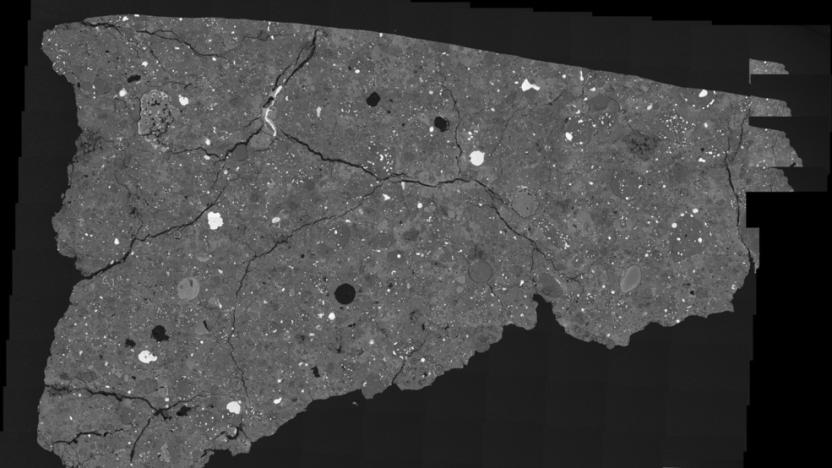astrobiology
Latest

A tiny space rock holds clues about the evolution of life
NASA researchers believe meteorite Asuka 12236 holds clues about the evolution of life as we know it.

NASA confirms mission to Jupiter's moon Europa
NASA has been talking for years about sending a probe to Europa, and now it's locking down those plans. The agency has confirmed the next phase of its Europa Clipper mission, which will send a spacecraft to the Jovian moon to determine if it could support life. The move allows progress toward finishing and testing a final design for the spacecraft. The administration is developing for a 2023 launch target to ensure a "cost-effective" process, but it's prepared to launch as late as 2025.

The search for a habitable second Earth
Contact with extraterrestrial life would be an epochal event. Even the discovery of a simple alien organism would be transformative, giving us unprecedented insight into how life forms on Earth and other planets. Yet, there's exactly zero proof that life exists beyond this world -- not one alien germ, spore or cell, let alone an advanced race that could save or enslave us. And we don't even know how life sprung up here 4 billion years ago from rocks, mud and water.

NASA paper on arsenic-bred organisms finds phosphorous-based detractors
Calm down, everyone, please take your seats. Now, no one here is saying arsenic-bred life is impossible -- they're not saying that, so your science fiction novel (which should be beyond the outline phase and in rough draft form) is conceptually fine. But, as you might have heard, there are a number of scientists -- including some that co-authored a 2007 paper that called for such arsenic-based research -- who are calling into question the paper behind NASA's big astrobiological announcement, noting what they see as "fatal flaws" and errors in methodology. Frankly, this kind of thing happens with most-to-all science papers, but given all the self-made hooplah surrounding the unveil, a public opposition seems poetically appropriate. Expect this toxic fight to propagate throughout an assortment of scientific journals, the initial test trialed numerous times over in hopes of recreating (and further verifying). Make no mistake, someone'll be bringing a beaker to the test tube fight.

NASA reveals arsenic-bred organisms, search for life gets broader parameters
If you were hoping NASA was going to announce the very first tweet from an extraterrestrial being, sorry to break your heart -- it is astrobiological, but the findings are actually borne of this rock. Researchers in Mono Lake, California, have discovered a microorganism (pictured) that uses arsenic instead of phosphorous to thrive and reproduce. The latter, as far as terrestrial life is concerned, is a building block of life along with carbon, hydrogen, nitrogen, oxygen, and sulfur, all integral to our DNA and RNA. Arsenic, meanwhile, is generally considered poisonous -- but "chemically it behaves similarly to phosphate," apparently making for a good substitution. In other words, NASA's proven that life can be made with components different than our current assumptions, both locally and beyond the stars. Seems entirely logical, if you ask us. (A silicon-based Horta, Mr. Spock?) So, what about other atypical life-forming chemicals? NASA isn't speculating. That sound you hear is a thousand light bulbs popping up as science fiction writers everywhere conjure up brand new super villains -- and a thousand Chemistry professors writing new extra credit questions for their fall semester finals.

NASA makes 'astrobiology discovery,' schedules press conference for Thursday to discuss alien life
So NASA seems to have made some hot new astrobiology discovery, but just like the tech companies we're more used to dealing with, it's holding the saucy details under embargo until 2PM on Thursday. That's when it's got a press conference scheduled to discuss its findings, which we're only told "will impact the search for evidence of extraterrestrial life." It's unlikely, therefore, that little green (or brown, or red, or blue) men have been captured somewhere on the dark side of the moon, but there'll definitely be some impactful news coming within only a couple of days. NASA promises a live online stream of the event, which we'll naturally be glued to come Thursday.


